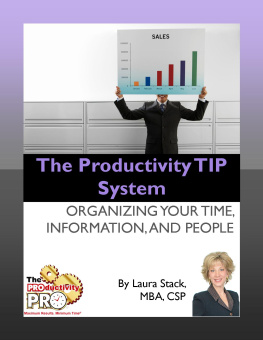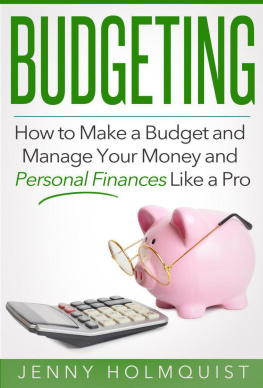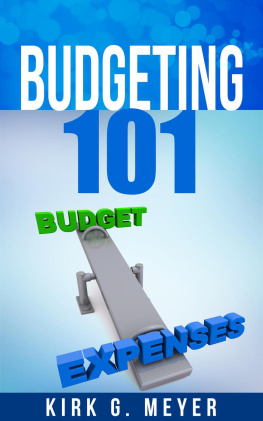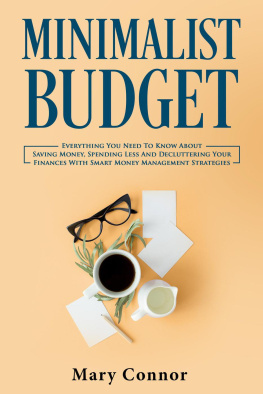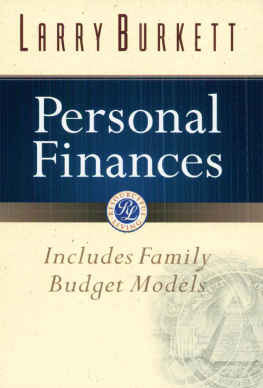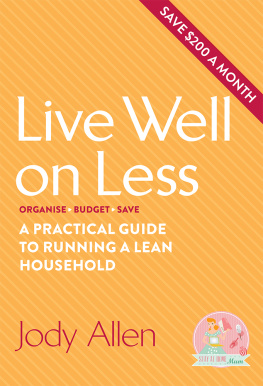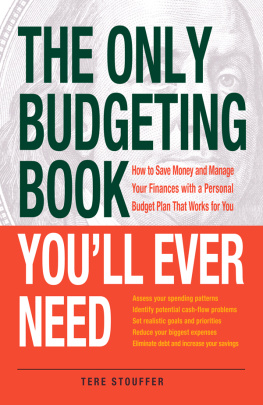Table of Contents
Your Household Budget:
Juggling Finances on the Home Front
Hi there! I'm Productivity Pro Laura Stack,joining you today to talk about an important aspect of daily life we workingparents sometime lose track of: the household budget.
In the ongoing whirl of work, family obligations, socialinteractions, and all the other activities that make up our lives, it's easy toforget about domestic finances. Who wants to worry about bills on top ofeverything else? But effective handling of your household budget forms afoundation for your efforts elsewhere, and it's especially critical for busyMoms and Dads.
So in this presentation, I'll discuss strategies forsuccessfully staying on top of your home-front financials, providing pointerson:
The basics of creating a household budget;
Budgeting for unexpected expenses;
How to assess and address your family insurance needs;
Saving for the future;
Getting ahead of the game;
Where to find resources like budgeting calculators, and how touse them; and
When to reach for help, and where to turn.
Let's get right to it, shall we?
Budgeting Basics
As a productivity expert, I teach people how to get the mostout of their limited supply of time. People unfamiliar with my methods oftenassume I focus exclusively on squeezing more out of the workdaybut workplaceefficiency represents just one part of the equation. The true secret toachieving overall productivity lies in constructing a decent work/life balance,one that gives you reasons to work hard, while simultaneously providinga solid basis on which to build your professional life.
Financial independence is an important part of this personalfoundation. Achieving this goal requires a firm, steady hand, especially if youhave a spouse and childrenso no matter how annoying it may seem, you must makethe effort and take the time necessary to keep on top of your householdfinances. Otherwise, you could end up jumping off the fiscal rails and miringyourself in a pit of debt that could take you years to work your way out of.
Though it requires some work, managing your family budgetdoesn't have to be terribly difficult. As with driving a car, once you're onyour way you just need to pay attention to the road, make course adjustmentshere and there, and add fuel as necessary. Make your plan as simple as possible,and keep an eye on the bottom linethe monetary gas gauge, if you will.
TheBasic Math
The mechanics of building a household budget boil down to asimple equation:
Household Income - Household Expenses = HouseholdSavings
Clearly, if your income exceeds your expenses, then you'vegot a surplus on your hands. If your expenses outweigh your income, you'rerunning a deficit. National governments may consider the latter acceptable, butfor individual households, "deficit" means "trouble." Ifyou find yourself in such a state of affairs, jam on the brakes, pull over, andstart making emergency repairs to your budget right away.
To get back to a positive result, you'll need to cut costs,increase your income, or both.
Accountfor Income
First of all: sit down and determine your income asprecisely as possible. Add up all the money you receive on a periodic basis:not just your aftertax paychecks, but also any benefits, including veteran's,Social Security, unemployment, or pension. If you receive alimony, childsupport, or public assistance of any kind, include it on the balance sheet.
Account for windfalls like work bonuses, interest income oninvestments, tax refunds, stock dividends, and monetary gifts as they appear.You can add some of these funds to your monthly budget, but put aside as muchas possible for rainy days (we'll come back to this subject soon). Don'tforget: you'll have to pay taxes on most of these windfalls laterso make sureyou also hold back at least 28% for Uncle Sam's share, in addition to theamount you put into savings.
EvaluatingExpenses
You can divide your "outgo" into any number ofcategories; but at the very least, separate it into mandatory and discretionaryexpenses. Mandatory expenses represent the last things you'll want give up whencutting your budget. But exercise caution when taking them on in the firstplace, since many are voluntary rather than necessary.
Mandatory expenses fall naturally into two basicsubcategories I call Fixed and Flexible. Fixed mandatory expenses includethings like:
Car payments
Mortgage payments
School tuition Property taxes
Insurance premiums
Childcare
These costs may fluctuate over time, but you generally knowwhat to expect from month to month.
As the name suggests, flexible mandatory expenses vary. Theycan include:
Pet costs
Utility bills
Credit cards bills
Commuting costs
Groceries
Others expenses needed to maintain a healthy lifestyle
You can usually save some money in this category, especiallyif you make certain assumptions while preparing your budget. For example: set a"buffer" amount representing the maximum you've ever spent on eachline item, and build it into your financial plan. That way, you're less likelyto overspend and may have a little left over at the end of the month.
Discretionary expenses are always flexible, but notmandatory; these comprise the expense category you should trim first. They mayinclude:
Entertainment
Cable TV
Big vacations
Expensive clothing
Jewelry and other accessories
One more thing: don't let irregular expensesi.e., thingsthat don't come due every month, like mortgage insurancetrip you up. Pro-ratethe cost over time, and put the required amount aside every month, keeping itseparate from all your other funds so you'll have it on hand when the billcomes due.
LiveWithin Your Means
Ultimately, your household budget succeeds or fails based onyour choices about what you think you and your family need to stay afloatso bevery careful here. Take charge of your spending habits, especially if they tendto take charge of you. And remember: little things add up. If you can'tfigure out where the money goes, then start tracking every dime you spend.Carefully review your credit cards and receipts, and identify the places whereyou can trim costs if necessary.
During tough times, work extra hard to cut expenses. Evenduring good times, try to limit your expenditures so you can put aside extracash for rainy days. If worse comes to worst, you may have to be brutal aboutit, drastically changing your spending habitseven to the point of downsizingyour home and car.
Once you do get a workable budget into play, keep a closeeye on it and evaluate it carefully over the course of several months. You maynot get things precisely right at first, but keep plugging away and tweakingthe details until everything settles into place. If your circumstances change,then roll with the punches and change along with them.
Budgeting for Unexpected Expenses
The ability to field unexpected expenses and still bounceback represents an important part of shaking off the traditionalpaycheck-to-paycheck lifestyle.
While such events may prove individually unpredictable, thatdoesn't mean you can't plan for them in the abstract. Common surprise expensesinclude:
Car repairs
Appliance repairs
Home repairs
Medical bills
Emergency travel
Job loss
To offset the damage from occurrences like these, you'llneed to do two things in advance: 1) perform all the preventative maintenanceyou can; and 2) accumulate savings to help you through the bad patches. In thiscontext, preventative maintenance includes everything from getting your autostuned up to making sure everyone in the family goes to the doctor, dentist, orvet regularly. Spend a little time thinking about and looking over everythingin your life, so you can catch most small things and get them fixed before theyballoon into costly problems.


